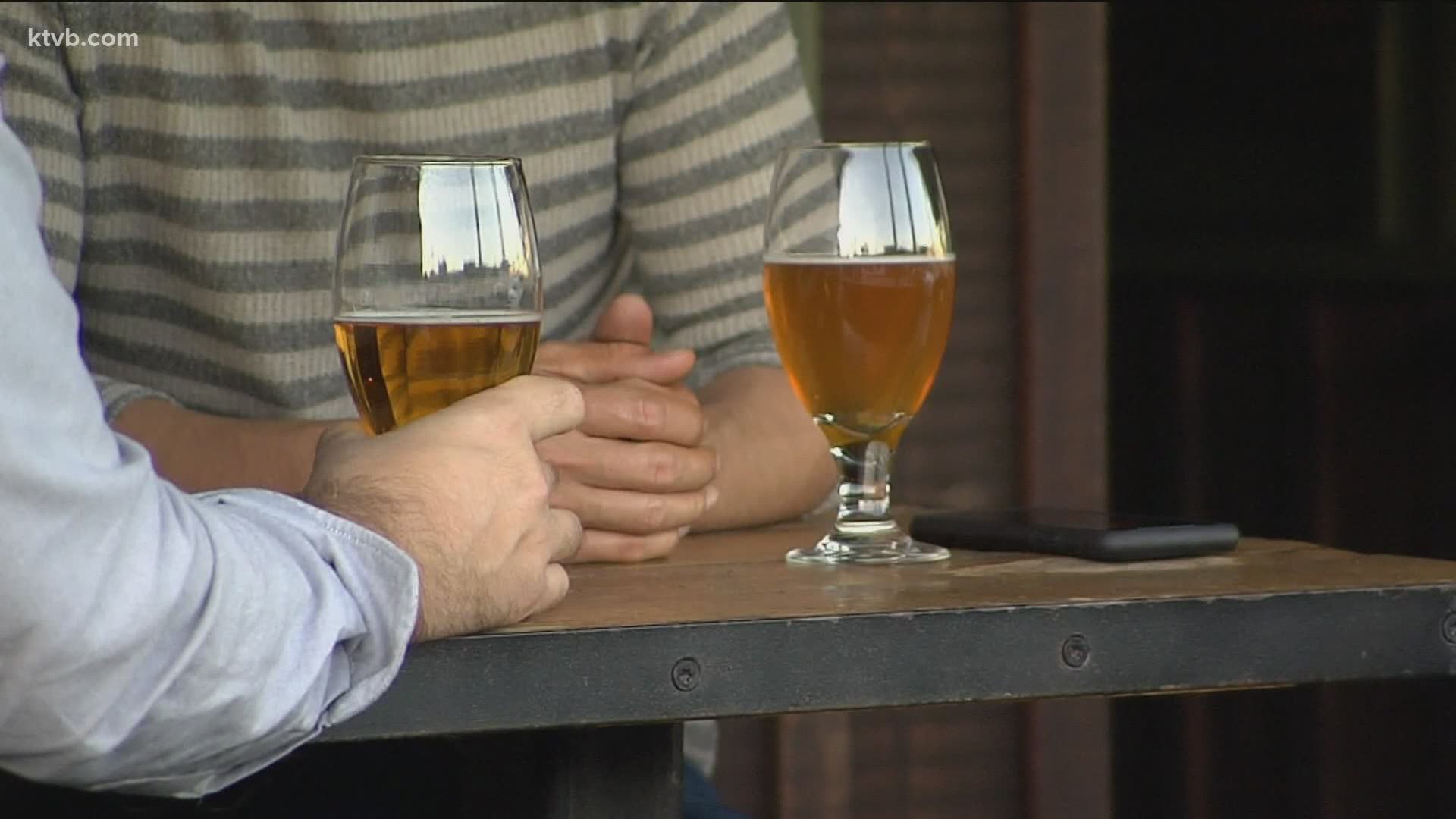BOISE, Idaho — Cookbook author, model and mom Chrissy Teigen surprised her 33 million followers on Instagram on December 29 when she declared she was four weeks sober.
The 35-year-old followed it up with this post: "I was done making a fool of myself in front of people, tired of day drinking and feeling like s**t by 6, not being able to sleep. I have been sober ever since."
This isn't the first time Teigen has opened up about her battle with alcohol. In a 2017 interview with Cosmopolitan, Teigan talked about how she got used to having a glass of wine in her hand, and how one glass would lead to another and another.
The COVID-19 pandemic has caused a lot of people to drink more often, and the increase is significant among women. A study published online in June in the journal Addictive Behaviors found that the greater a woman’s stress, the more she tends to drink.
And there is no shortage of stressors these days - from social isolation to fears of losing one's job.
Another study - out of the University of Texas - found that as the amount of time people spend at home increases, so does the amount they're drinking.
The Texas researchers examined nearly 2,000 adults and found during the pandemic, one in three is binge drinking, defined as taking down four to seven drinks in a single sitting. And for every week the pandemic drags on, binge drinking increases by 19%.
"And people are really struggling," said Leigh Richardson, a neurotherapist who specializes in addiction, anxiety and depression.
Richardson says she's seeing more clients act impulsively during the pandemic.
“We've got that layer of uncertainty," she explained. "Will my kids go back to school? Will I go back to work? So I think it's natural that the more uncertainty and stressed out we feel, we look for something for comfort. And for a lot of people, it's alcohol."
Richardson says coping during a pandemic in a healthy way includes getting into a new state of mind for the new year. For example, trying a period of sobriety can be very beneficial for your physical and mental health.
Dry January is a month when many people voluntarily stop drinking alcohol after the excesses of December and start the new year on a sober, clearer, more refreshed and healthy note.
Experts say it can be a great kind of self-diagnosis of how important alcohol really is to you. Can you go a week or a month without it? And if you can't, why not? What is it that's driving your need for alcohol?
"You have to replace bad habits with good habits," Richardson said.
Think of Dry January as a way of letting you sample sobriety without being overwhelmed by the concept of skipping alcohol forever. Experts say the health benefits are proven. Lowering your alcohol consumption can help your blood pressure, help with weight loss, and decrease cancer-related growth factors. Not to mention, you may sleep better, have better concentration, better energy, better overall health.
And who knows? Maybe by January 31, you'll find you like yourself better.
"And particularly this time of year, what I'm talking to all my clients about, is you've got to start thinking about 2021," Richardson said. "So I'm trying to shift people to look forward and to think about what's important to them and what they value, not what they've lost."
Who's a good candidate to give dry a try? Experts say people who consider themselves to be moderate drinkers. This is not for people with severe alcohol use disorder, which can be dangerous to quit abruptly. You would want to do that with the help of a health professional.
Watch more 'Hello Idaho':
Watch our latest conversations about mental health in our YouTube playlist:

